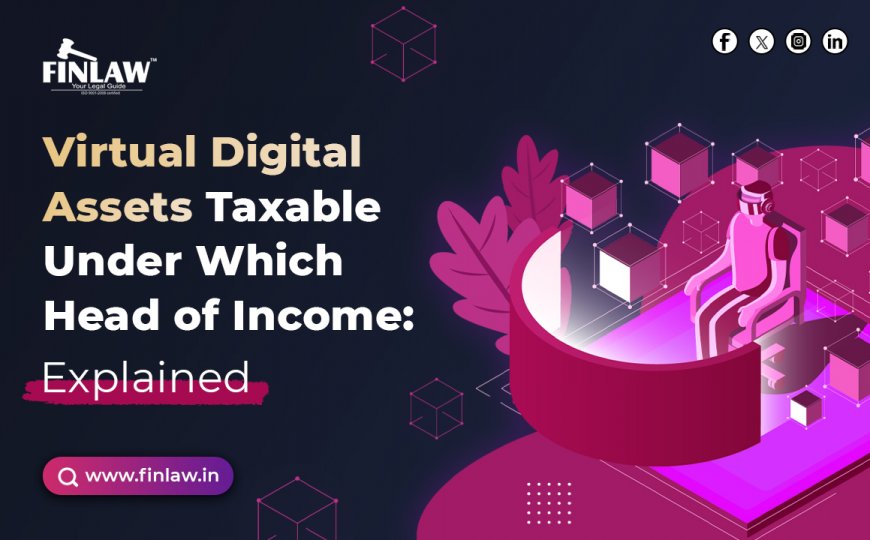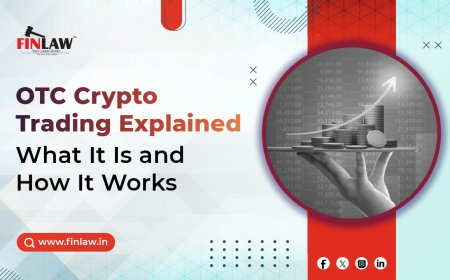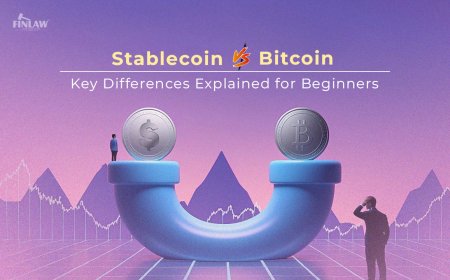Virtual Digital Assets Taxable Under Which Head of Income: Explained
Learn how virtual digital assets are taxed in India under capital gains, business income, and other sources. Understand key tax provisions & compliance.

The rapid proliferation of Virtual Digital Assets (VDAs), including cryptocurrencies and Non-Fungible Tokens (NFTs), has prompted governments worldwide to establish clear tax regulations. In India, the taxation framework for VDAs has evolved significantly, especially with the introduction of specific provisions in recent Union Budgets. This article delves into the categorization of income from VDAs under the Indian Income Tax Act, elucidating the applicable heads of income and the corresponding tax implications for digital assets tax and virtual assets tax.
Understanding Virtual Digital Assets (VDAs)
The Income Tax Act of India defines Virtual Digital Assets under Section 2(47A) as digital representations of value that can be transferred, stored, or traded electronically. This encompasses cryptocurrencies, NFTs, and other digital tokens. The definition aims to cover a broad spectrum of digital assets tax provisions to ensure comprehensive taxation and regulatory compliance.
Taxation Framework for VDAs in India
The taxation of VDAs in India is primarily governed by Section 115BBH of the Income Tax Act, introduced in the Finance Act 2022. This section stipulates a flat tax rate of 30% on income arising from the transfer of VDAs, irrespective of the nature of income. Additionally, no deductions are allowed except for the cost of acquisition, and losses from VDAs cannot be set off against other incomes. This framework falls under the category of virtual assets tax in India.
Heads of Income Applicable to VDAs
The classification of income from VDAs under specific heads depends on the nature and frequency of transactions:
1. Income from Capital Gains
If an individual invests in VDAs with the intention of holding them as capital assets, any profit arising from their transfer is treated as capital gains. The period of holding determines the classification:
-
Short-Term Capital Gains (STCG): If VDAs are held for 36 months or less.
-
Long-Term Capital Gains (LTCG): If VDAs are held for more than 36 months.
However, under Section 115BBH, both STCG and LTCG from VDAs are taxed at a uniform rate of 30%, without any indexation benefits or deductions except for the cost of acquisition. These gains fall under the taxable under head of capital gains.
2. Income from Business or Profession
For taxpayers who trade VDAs frequently and systematically, treating it as a business activity, the income is classified under "Profits and Gains from Business or Profession." In such cases, the net income is taxed at 30% as per Section 115BBH. Notably, no deductions for business expenses are permitted, aligning with the stringent provisions of this section. The taxation of such business activities is covered under virtual assets tax laws.
3. Income from Other Sources
In scenarios where VDAs are received without consideration or as gifts, the value of such assets is taxed under "Income from Other Sources" as per Section 56(2)(x) of the Income Tax Act. If the aggregate value of gifts exceeds ₹50,000 in a financial year, the entire amount becomes taxable in the hands of the recipient. This category also falls under taxable under head of other sources of income.
Key Tax Provisions Impacting VDAs
Several critical provisions influence the taxation of VDAs:
-
Section 115BBH: Mandates a 30% tax on income from the transfer of VDAs, disallows deductions except for the cost of acquisition, and prohibits the set-off of losses from VDAs against other incomes.
-
Section 194S: Introduces a 1% Tax Deducted at Source (TDS) on payments for the transfer of VDAs exceeding ₹50,000 (₹10,000 in certain cases) in a financial year, effective from July 1, 2022.
-
Section 56(2)(x): Covers the taxation of VDAs received as gifts, taxing them under "Income from Other Sources" if their value exceeds ₹50,000.
GST Implications on Virtual Digital Assets
Apart from income tax, there is an ongoing debate on whether transactions involving VDAs attract Goods and Services Tax (GST). Currently, cryptocurrency exchanges in India are required to pay an 18% GST on their service fees. However, whether cryptocurrency transactions themselves are subject to GST is still being evaluated by tax authorities. This adds another layer to the broader digital assets tax framework.
Penalties for Non-Compliance
Failure to report VDA transactions or evade taxes on VDAs can result in severe penalties, including:
-
Interest on unpaid taxes
-
Monetary fines under the Income Tax Act
-
Potential prosecution in extreme cases
The Indian government has been closely monitoring VDA transactions to ensure compliance, and tax authorities have issued notices to individuals suspected of tax evasion related to VDAs.
Practical Implications for Taxpayers
Taxpayers dealing with VDAs should consider the following:
-
Record-Keeping: Maintain detailed records of all VDA transactions, including dates, amounts, and counterparties, to ensure accurate tax reporting.
-
Tax Reporting: Disclose income from VDAs under the appropriate head in the Income Tax Return (ITR). For instance, ITR-2 includes a specific schedule for reporting VDA income.
-
Compliance with TDS Provisions: Ensure compliance with TDS requirements under Section 194S to avoid penalties.
-
Consultation with Tax Professionals: Given the complexities and evolving nature of virtual assets tax, seeking advice from tax professionals is prudent.
Conclusion
The taxation of Virtual Digital Assets in India is characterized by specific provisions that classify income based on the nature of transactions. Whether categorized under capital gains, business income, or other sources, the uniform tax rate of 30% underscores the government's intent to regulate and tax this emerging asset class effectively. Taxpayers must stay informed and compliant with these provisions to navigate the digital assets tax landscape successfully.
What's Your Reaction?



















